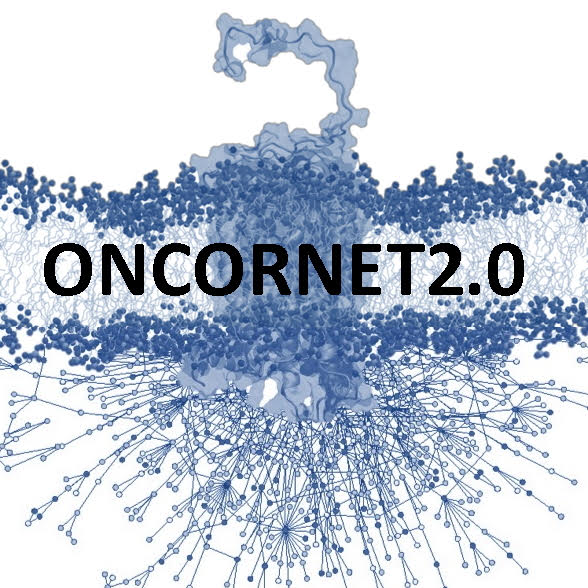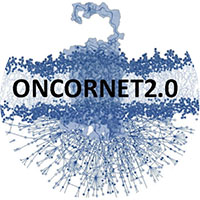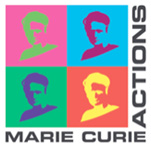CXCR4-ACKR3 (patho)physiological roles in Human papillomavirus (HPV) oncogenesis: controlling the shift from commensalism to pathogenesis.
Early stage researcher 14 (ESR14) project
Supervision: Dr. Francoise Bachelerie, Dr. Géraldine Schlecht
Host: INSERM
I – Project proposal:
Background:
Our team has a long-standing interest in studying the interplay between viruses and their host both at the virus-specific target and immune cell levels. Chemokines and their receptors are central in this interplay considering their broad expression among cells and tissues and their control over many homeostatic processes (e.g. cell survival, proliferation, or trafficking) with the corollary being their implication in several types of disorders (e.g. infectious and immune diseases, cancers). Our interest mainly focuses on the CXCL12/CXCR4-ACKR3 trio, which was reported being hijacked by some viruses and notably Human Papillomavirus (HPV).
Objectives:
- Cross-talk between leukocytes and HPV-target cells at the skin and mucosal epithelial barriers with a focus on candidates identified in the ONCORNET1.0 program (i.e. proteomics and transcriptomics results).
- Importance of the circadian clock and its control by CXCR4/ ACKR3 in host surveillance toward viral-driven oncogenesis.
- Assessing the impact of modulating the identified pathways using tools generated by the ONCORNET2.0 consortium (e.g. photoactivatible ligands).
Expected Results:
By analyzing HPV life cycle as a prototypical example of a commensal virus (virome) with oncogenic potential, we hope identifying more generally host factors that control the shift from commensalism to pathogenesis at epithelial barriers. This will be done by combining in house expertise (mouse models including humanized mice) with tools previously generated in frame of the ONCORNET1.0 consortium (e.g. nanobodies, CRISPR-Cas9 gene editing technology).
Methodology:
3D-epithelial cell cultures – CRISPR-Cas9 – RNA-Scope – Histology –Flow cytometry – HTRF/BRET-based assays
Planned secondments:
CNRS – Evaluate the existence and localization of CXCR4 and ACKR3 oligomers in tissues [m12];
Vrije Universiteit Amsterdam – Phosphorylation barcoding of CXCR4 and ACKR3 and photoswitchatible ligands in developed (patho)physiological cell models [m24].
II – Requirement candidate:
Required diploma: MSc degree in molecular/biomedical Life Sciences, Microbiology/immunology Sciences or related Life Sciences degree.
Required expertise: Biochemistry, Molecular biology, Cell biology.
Recommended expertise: HTRF/BRET-based assays, imaging, viral-particle-related assays, Flow-cytometry, mice model practice.
Key publications:
- Koenen J, Balabanian K, Bachelerie F, Schlecht-Louf G, Gallego C. Atypical chemokine receptor 3 (ACKR3): a comprehensive overview of its expression and potential roles in the immune system. Molecular Pharmacology. 2019 April 30. doi: 10.1124/mol.118.115329. Mini-Review.
- de Wit RH, Heukers R, Brink HJ, Arsova A, Maussang D, Cutolo P, Strubbe B, Vischer HF, Bachelerie F, Smit MJ. CXCR4-Specific Nanobodies as Potential Therapeutics for WHIM syndrome. J Pharmacol Exp Ther. 2017 Oct;363(1):35-44. doi: 10.1124/jpet.117.242735.
- Meuris F, Carthagena L, Jaracz-Ros A, Gaudin F, Cutolo P, Deback C, Xue Y, Thierry F, Doorbar J, Bachelerie F. The CXCL12/CXCR4 Signaling Pathway: A New Susceptibility Factor in Human Papillomavirus Pathogenesis. PLoS Pathog. 2016 Dec 5;12(12):e1006039. doi: 10.1371/journal.ppat.1006039. eCollection 2016 Dec.
- Calmette J, Bertrand M, Vétillard M, Ellouze M, Flint S, Nicolas V, Biola-Vidamment A, Pallardy M, Morand E, Bachelerie F, Godot V, Schlecht-Louf G. Glucocorticoid-Induced Leucine Zipper protein controls macropinocytosis by dendritic cells. The Journal of Immunology. 2016 Dec 1;197(11):4247-4256.
- Bachelerie F, Graham GJ, Locati M, Mantovani A, Murphy PM, Nibbs R, Rot A, Sozzani S, Thelen M. (2014) New nomenclature for atypical chemokine receptors. Nat Immunol. 2014 15:207-8. doi: 10.1038/ni.2812.
For more information:
Dr. Francoise Bachelerie – francoise.bachelerie@u-psud.fr
Dr. Géraldine Schlecht – geraldine.schlecht-louf@u-psud.fr
Application:
Please send your application to nadine.belzic@inserm.fr
Include in heading – ONCORNET2.0 application + ESR#
Follow us on
Contact details
Please contact us at:
e.v.langemeijer@vu.nl
ONCORNET Coordinator
Vrije Universiteit Amsterdam




